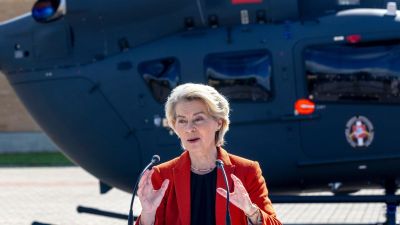The iftaar party trap
HRD Minister Arjun Singh, fresh from his 75th birthday party, has taken another 8220;secular8221; initiative. His ministry has given the ...

HRD Minister Arjun Singh, fresh from his 75th birthday party, has taken another 8220;secular8221; initiative. His ministry has given the 8220;no objection8221; to 50 per cent reservations for Muslim students in 36 postgraduate courses at Aligarh Muslim University. Not to be outdone, his cabinet colleague, Ram Vilas Paswan, has announced that he yearns for a Muslim as chief minister of Bihar. In Andhra Pradesh, chief minister Y.S. Rajasekhar Reddy is waving the banner of Muslim reservations in government jobs. Not to forget the CEO of Secularism And Social Justice Pvt Ltd, Laloo Prasad Yadav. He may have forgotten to bring justice to the victims of the Bhagalpur carnage of 8217;89, but has ensured another extension to the Godhra commission, perhaps hoping to reveal its contents at around election time yet again to exhibit how deeply he feels for his Muslim voters, sorry, brothers.
Official Indian secularism is a tragic story. Token appointments are made to high office, symbolic caricatures during elections are trotted out, iftaar parties are held with guests in appropriate headgear and wars are launched on 8220;saffron8221; textbooks. Yet underlying this fancy dress party is the sad truth that the Indian state has resoundingly failed to integrate Muslims into the mainstream. After five years of brutal Hindutva, the UPA government is failing to come up with any imaginative new policies on minorities. Instead, it is imprisoned in the old definition of official secularism which hinges on quotas and forever consigns Indians to hostile ghettos. Zakir Hussain8217;s words that, 8220;it is easier for a Muslim to be president of India than it is to be a clerk in Rashtrapati Bhavan,8221; still hold true.
A.P.J. Abdul Kalam may be president of India but 62 per cent Muslim males remain unemployed or underemployed. The Muslim strength in government service is only 12 per cent and the overall literacy among Muslims is below 40 per cent. There is reason to celebrate the success of Irfan Pathan and Shah Rukh Khan but millions of young Indians are still denied jobs, accommodation and dignity because of their names. The good souls in the government and in Big Mama8217;s Advisory Council who are toiling for Bharat Nirman have failed to confront another urgent task: they need to provide a human face not only to economic reforms but also to secularism. They need to snatch secularism away from the old-fashioned methods of Arjun Singh and the votebanks of Paswan and Laloo and instead use it to re-ignite a progressive society which holds out opportunity and hope for all. Dump the quotas and reservations: work instead towards unleashing, or creating, the Indian conscience.
Electoral politics cannot produce social reform. That task must be spearheaded by a far-sighted executive. The challenge is how to transform the pillars of mainstream India 8212; businessmen, school principals, bureaucrats, policemen, lawyers, doctors, real estate agents, into stake-holders of religious tolerance. How to awaken employers and house owners to the historical memory of coexistence rather than the remembered 8216;8216;terror8217;8217; of Mahmud of Ghazni. How to get people to remember that the original Sai Baba of Shirdi was a Muslim by birth, that for five centuries folk saints like Satya Pir have been worshipped by Hindus and Muslims alike.
The first step is to accept that official secularism so far has only divided society. Instead of ideological stances on re-writing textbooks and rotating academics of various hues through the doors of different academic institutions, the government8217;s energies should be directed and should be seen to be directed at creating world-class, better researched, better written and more student friendly textbooks. The effort and language of the government should not be as brazenly ideological as it is: instead the focus should be thorough quality upgradation. All over the world, the best minds are now being harnessed to writing school texts and to an extent this is happening in the NCERT, yet the effort needs to be squarely on better standards rather than settling ideological scores.
Ian Buruma and Avishai Margalit in their book Occidentalism have provided an eloquent account of how a state8217;s attack on religion can lead to an unforeseen backlash. Reza Shah Pahlavi of Iran, a military strongman in the Ataturk mould, violently attacked tradition. Soldiers roamed the streets ordering women to strip off their veils and clerics were forced to take off their turbans. Believers were forbidden to go for haj and religious students who protested were gunned down. As a result, his son, the next Shah, was deposed in 1979 and theocracy came to Iran. Thankfully no Indian government hoping to get elected can afford to undertake openly anti-religion measures. Yet enforcing quotas or reserving jobs will also provoke a backlash. Instead of unnecessary acts like erasing Savarkar8217;s quotes from memorials, the UPA should adopt a twin strategy. On the one hand there should be zero tolerance secularism in areas like recruitment into the army, law and order and religious freedom. On the Samjhauta Express between Amritsar and Lahore, for example, immigration officers should be educated not to treat travellers like terrorists. The ambit of police reform should also include transforming the mentality of the force. Racial slurs in Britain8217;s Scotland Yard are widely publicised, but there is no similar scrutiny for religious slurs by the Indian police.
At the same time, innovative social steps should be taken. Corporates should be encouraged to become diversity employers. Moral power should be conferred, through awards or grants, to those enterprises which are diversity employers not just of Muslims but of women and SC/STs and these should be showcased as the achievements of New India. On Republic Day, in addition to bravery awards, awards should be given to children who have shown empathy for all communities. Advertising campaigns should be created to show how religious discrimination comes in the way of progress, upward mobility and wealth creation. Muslim joblessness and anxiety are a terrible indictment of how unjust our society is. But Arjun Singh is 75 and doesn8217;t have the answers anymore. He doesn8217;t realise that quotas are short cuts, left overs from the previous century, they are a means to postpone the challenge of changing the public mind. Alongwith the transformation from India Shining to Bharat Nirman, in place of the bigotry of hindutva and the tired formulae of official secularism, there is a need for a new social policy.
- 01
- 02
- 03
- 04
- 05































